Translation : Gan Yung Chyan, KUCINTA SETIA
Latest News: Xi Jinping and Cai Qi may be forced to resign due to age
Editor : Tang Zheng / https://www.ntdtv.com/gb/2025/10/10/a104028428.html / Image : After the 20th National Congress of the Communist Party of China, infighting within the top leadership has intensified. (Image: Schematic diagram)
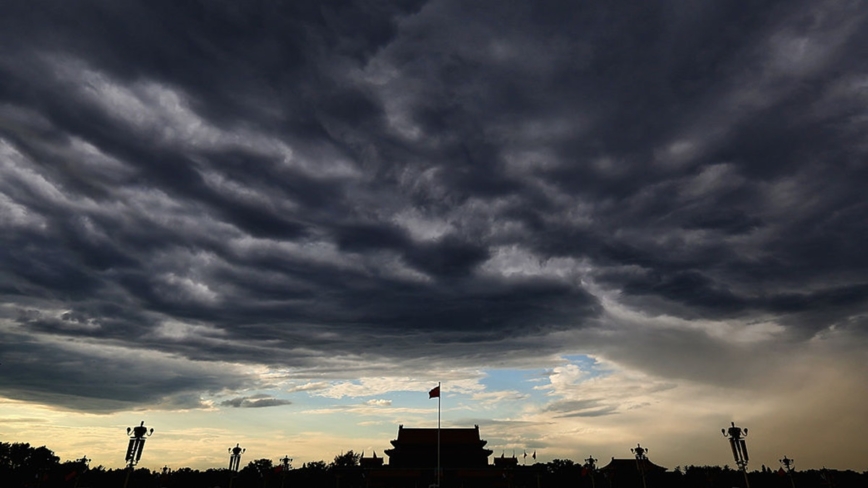
With the Fourth Plenary Session of the 19th Central Committee of the Communist Party of China (CPC) approaching, various rumors are circulating, focusing on personnel changes at the top. Some sources indicate that the CCP is using "age" as an excuse to force Xi Jinping and Cai Qi to step down from the political stage.
On 7 October 2025, independent commentator Cai Shenkun stated on his own media program that he had received information from a friend in China that Xi Jinping and Cai Qi might be forced to step down due to age.
Cai Shenkun said the information came from someone who has very close ties with or extensive contact with the CCP's top leadership. The source also provided screenshots of their conversations, which essentially stated that Xi Jinping and Cai Qi should step down from the political stage due to age constraints.
Cai Shenkun asked, "Who is forcing Xi Jinping and Cai Qi to leave the political arena? Is it Zhang Youxia or the current leadership?" The source didn't provide a complete answer, nor could he address his question.
Furthermore, the source mentioned Wen Jiabao's special status, saying that all documents within the CCP must now be submitted to Wen Jiabao for his signature.
The source also mentioned the relationship between Xi Jinping and Zhang Youxia, saying that the conflict between them has reached an irreconcilable point, a life-or-death struggle.
Cai Shenkun explained, "This is just the information I received, and it's said to be quite certain." The source hoped he would share this information with the outside world.
Cai Shenkun stated on the program that there are reports that Zhang Youxia and Liu Zhenli are now directly commanding the military, with all military power transferred to them. Xi has completely lost control of the military, and the military has completely taken over security in Beijing and Zhongnanhai.
Cai Shenkun explained that the so-called military takeover means the Central Security Bureau and the Beijing Garrison are responsible for defense, naturally referring to the Central Theater Command. Now that the commander and political commissar of the Central Theater Command have disappeared, it's unclear who is in charge in the Central Theater Command. This shady operation is like a fog, making it difficult for the outside world to understand.
Cai Shenkun stated that he did not want to speculate or comment excessively on the stability of Xi Jinping's power. He simply wanted to share that Xi Jinping and Cai Qi, due to their age, are facing numerous questions from senior Party officials and may soon be forced to step down.
Cai Shenkun believes that if such a scenario were to occur, China's political landscape would undergo a major shift, and this shift would take unexpected forms. Cai Shenkun also mentioned in another program that he's heard from many friends that the CCP's political landscape is undergoing significant changes, adding that Xi Jinping's position is already sealed. Even if he doesn't make concessions at the Fourth Plenum, his power is likely to be weakened.
Cai Shenkun stated that the whistleblower told him that he's under considerable pressure and asked him not to mention the Zhang Youxia incident. He believes this incident is likely causing significant tension within the CCP's top leadership, suggesting it's either groundless or based on facts. Regardless of the perspective, if it's confirmed, it will likely lead to significant changes in China's political trajectory and the power dynamic within the military.
The Fourth Plenum of the CCP was held in Beijing from October 20th to 23rd. It's believed that the main focus of this meeting will be a major reshuffle of top leadership and whether Xi Jinping's power will change.
On 10 October 2025, political and economic commentator Tang Baiqiao posted on the overseas X platform, stating that he must reveal an important piece of information: Xi Jinping's situation is indeed not good. As for what the situation is, how serious it is, and whether he will step down immediately, he understands it but is not ready to publicly disclose it yet. Otherwise, if the situation changes, everyone will think he's talking nonsense.
Since the 20th National Congress of the Communist Party of China, a large number of high-ranking Party, government, and military officials personally promoted by Xi Jinping have fallen from power. The Hong Kong-based South China Morning Post reported on 8 October 2025 that this meeting will see the largest personnel shakeup since 2017. Multiple sources indicate that at least nine Central Committee members have already been confirmed for replacement.
Independent commentator Du Zheng recently wrote in the Shangbao newspaper that the continuous fall of Xi's appointees has led to a widespread collapse of Xi's inner circle, directly undermining Xi's authority. "By the Fourth Plenum, this will be a laughing stock for all Central Committee members. It will be a great humiliation for Xi."
Veteran Japanese journalist Katsuji Nakazawa wrote in Nikkei Asia that any key personnel changes announced at this meeting should be closely monitored, as they will impact the future of the CCP's political landscape.
The situation is critical! Xi Jinping is on high alert
Reporter : Wang Duruo / Editor : Fang Xun / https://www.aboluowang.com/2025/1010/2288961.html
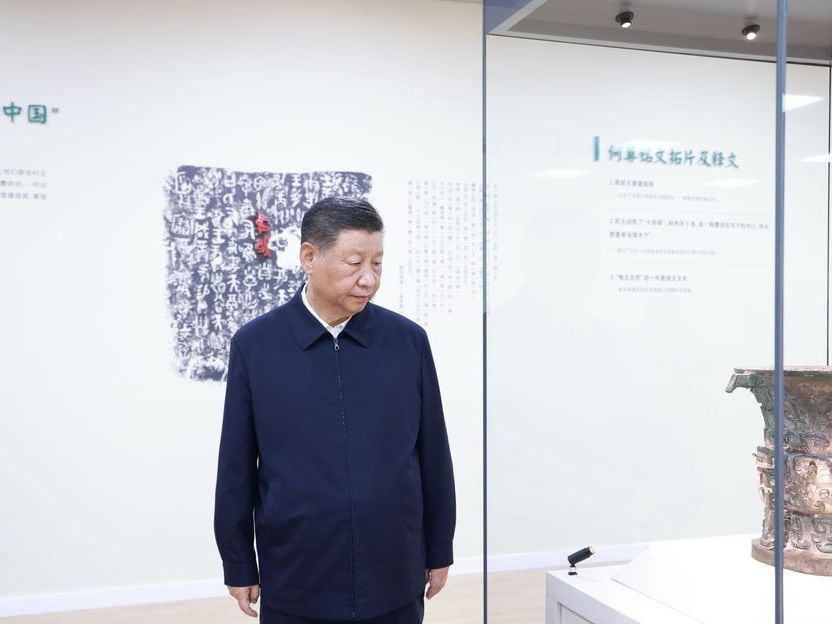
On 9 October 2025, Beijing officials announced that Chinese Communist Party (CCP) leader Xi Jinping will attend the Global Women's Summit in Beijing from 13 to 14 October 2025 and deliver a keynote speech.
On the same day, Chinese Premier Li Qiang led a delegation to North Korea for a two-day visit. This was the first visit by a Chinese premier to North Korea in 16 years. The last visit was in 2009, when Wen Jiabao visited Pyongyang and met with Kim Jong Il on the 60th anniversary of diplomatic ties between China and North Korea. Li Qiang's trip was primarily to attend the 80th anniversary celebrations of the Workers' Party of Korea, but this event constituted inter-party diplomacy.
American political commentator Tang Jingyuan told The Epoch Times, "This is an unconventional arrangement, suggesting something unusual is going on. It was originally supposed to be Xi Jinping or Cai Qi, but neither of them went, indicating a delicate internal situation."
Aboluowang commentator Wang Duran analyzed that China and North Korea have always sent high-level delegations to each other for major celebrations (such as Party and National Day celebrations), and the level of attendees often reflects the closeness of the relationship between the two countries and the importance they attach to the ceremony. At the 70th anniversary of the founding of the Workers' Party of Korea in 2015, the Chinese delegation was led by Liu Yunshan, a member of the Standing Committee of the Political Bureau of the CPC Central Committee and in charge of Party affairs, a high-profile event. At the 75th anniversary of North Korea's founding in 2023, Vice Premier Liu Guozhong represented the CPC, a slightly lower level. In 1988, Chinese President Yang Shangkun visited Pyongyang to attend the 40th anniversary of the founding of the North Korean regime. In 2013, Vice President and Politburo member Li Yuanchao attended the military parade marking the 60th anniversary of the Korean War armistice. In 2018, Chairman of the Standing Committee of the National People's Congress and a member of the Standing Committee of the National People's Congress Li Zhanshu attended the military parade marking the 70th anniversary of North Korea's founding.
Wang Duran pointed out that Kim Jong-un's previous attendance at the September 3rd military parade in Beijing was not a state visit, so Xi Jinping had no obligation to reciprocate. This time, Beijing sent Premier Li Qiang to attend, but compared to Cai Qi, who is in charge of Party and foreign affairs, this appears more "political." This arrangement is particularly delicate on the eve of the Fourth Plenary Session of the 19th CPC Central Committee.
Wang Duran stated that Xi Jinping has rarely left Beijing recently. This is likely due to considerations of internal Party personnel adjustments, political stability, and his health. He has chosen to remain in Beijing to ensure overall control and prevent unexpected developments. Even more striking is that Cai Qi, a member of the Politburo Standing Committee responsible for the CCP's top leadership security and surveillance system, was supposed to travel on behalf of the delegation but did not, reflecting the intense tension and vigilance within Zhongnanhai ahead of the Fourth Plenary Session.
Shen Mingshi, a researcher at Taiwan's National Defense Research Institute, analyzed that Xi Jinping's decision not to travel to North Korea at this time is primarily to avoid provoking South Korea, secondly, because he may be in poor health, and most importantly, because he must remain in Beijing before the Fourth Plenary Session to prevent unexpected developments.
Xi Jinping's personnel changes forced reorganization at the Fourth Plenum
Editor : Zhongkang / Source: New Tang Dynasty Television / https://www.aboluowang.com/2025/1009/2288787.html / Image : The Fourth Plenary Session of the 19th Central Committee of the Communist Party of China is scheduled for October 20. It is expected that the reorganization of the Central Committee of the Communist Party of China will reach its largest scale in nearly eight years after this meeting. (Photo: A file photo of Zhongnanhai.) (Greg Baker /AFP Getty Images)
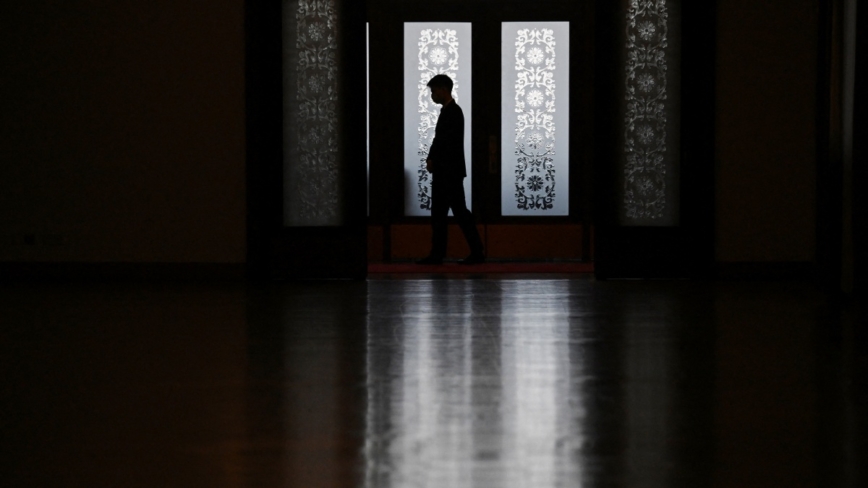
The Fourth Plenum of the Communist Party of China (CPC) Central Committee, scheduled for the end of this month, is drawing close attention to high-level personnel changes. Given the significant collapse of the personnel structure established by Xi Jinping after the 20th National Congress, leading to the fall of senior Party, government, and military officials, multiple sources indicate that at least nine Central Committee members have already been confirmed to be replaced, forcing a reshuffle of the current Central Committee, marking the largest personnel shakeup since 2017.
The Fourth Plenum is scheduled for 20 October 2025. While officials claim the meeting will focus on the 15th Five-Year Plan and Party building, expectations are that the scale of the reshuffle of the CPC Central Committee will be the largest in nearly eight years.
The Hong Kong-based South China Morning Post reported on the 8th that the meeting will see the largest personnel shakeup since 2017. Multiple sources indicate that at least nine Central Committee members have already been confirmed to be replaced.
Several Central Committee Members have been in trouble
Among the confirmed ousted senior CCP officials, former Foreign Minister Qin Gang, former Defense Minister Li Shangfu, and former Rocket Force Commander Li Yuchao were all removed from their posts at the Third Plenum last year. Among them, Qin Gang "resigned but is still referred to as a comrade," indicating that he remains under criminal investigation but has not yet been expelled from the Party. Li Shangfu and Li Yuchao were expelled from the Party and removed from their Central Committee membership for serious violations of discipline.
Since then, several other Central Committee members have been embroiled in scandals. Former Minister of Agriculture and Rural Affairs Tang Renjian was sentenced to death with a two-year reprieve, while former Chairman of the China Securities Regulatory Commission Yi Huiman was detained for investigation for "serious violations of discipline and law."
So far, the number of ministerial-level CCP officials investigated this year has risen to seven: former Chairman of Tibet Qi Zhala, former Secretary of the Hubei Provincial Party Committee Jiang Chaoliang, former Governor of Shanxi Jin Xiangjun, CPPCC Standing Committee member Bi Jingquan, former Chairman of Guangxi Lan Tianli, former Chairman of Ningxia Liu Hui, and Inner Mongolia Chairman Wang Lixia, who was recently removed from office on August 22.
Among them, Wang Lixia's downfall has drawn particular attention. Wang Lixia, 61, was the former Chairman of the Inner Mongolia Autonomous Region Government and a member of the 20th CPC Central Committee.
Three Military Central Committee Members expected to be removed
In addition to local and financial systems, the Chinese Communist Party's military is also being targeted for a purge. Three high-ranking officials may lose their Central Committee positions at the Fourth Plenum. These include former Central Military Commission Chairman Miao Hua, Armed Police Commander Wang Chunning, and former CMC Logistics Department Director Zhang Lin, all of whom are rumored to be formally removed from their posts at the Fourth Plenum.
Furthermore, the long absences of former CMC Vice Chairman He Weidong, former CMC International Liaison Minister Liu Jianchao, and Ministry of Industry and Information Technology Party Secretary Jin Zhuanglong have fueled speculation.
Since Chinese Communist Party leader Xi Jinping entered his third term at the 20th National Congress, a large number of senior officials have been rapidly promoted and then quickly removed. An article by independent commentator Du Zheng published on October 4th by Taiwan's Up News indicated that, according to a rough estimate, at least 46 members and alternate members of the Central Committee personally promoted by Xi Jinping have been involved in mishaps since the 20th National Congress. Only 19 have been officially announced as removed, with the majority remaining secret.
Veteran commentator Hong Yaonan recently wrote on Facebook that since the 20th National Congress, the CCP's top military and political leadership has been volatile, with corruption scandals erupting one after another. Some have been purged, positions remain vacant, and senior officials are "missing," leaving the entire system in an abnormal state of simultaneous replacements and vacancies. This isn't just a single incident, but a systemic collapse.
Du Zhengze believes that the successive downfalls of Xi Jinping's promoted officials, the widespread collapse of Xi's "army," are directly undermining Xi Jinping's authority. "By the Fourth Plenum, this will be a laughingstock for all members of the Central Committee. It will be a profound humiliation for Xi."
China will be in chaos! Xi Jinping will perish in the "Red Horse and Red Sheep Disaster"
Report by : Wutai Sengren / Editor : Fang Xun / Source: X New Heights / https://www.aboluowang.com/2025/1009/2288737.html
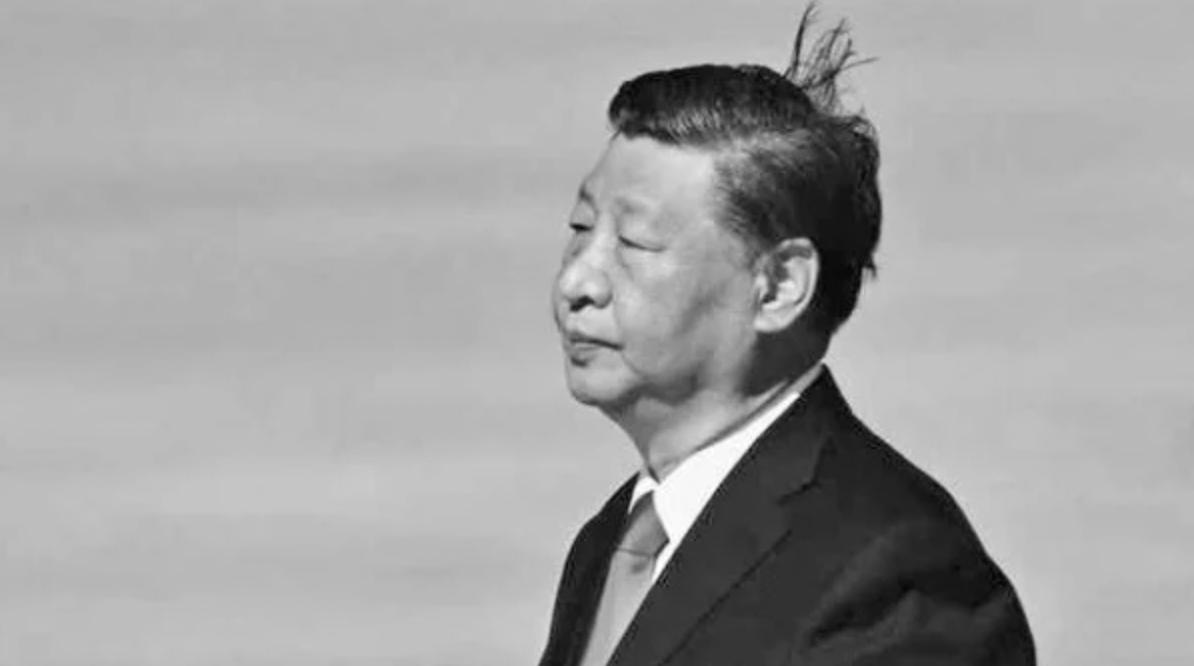
As of October 2025, China is mired in multiple crises: economic growth has hit rock bottom, the real estate market is on the verge of a "death spiral," and social protests are surging. Internationally, the US-China trade war has escalated again during Trump's second term, further fueling global geopolitical tensions.
The traditional prophecy of the "Red Horse and Red Sheep Disaster"—which states that in the years of Bingwu (Horse) and Dingwei (Sheep), the country is prone to major unrest—points with astonishing accuracy to the "Fire Years" of 2026-2027.
The Southern Song scholar Chai Wang recorded 21 historical disasters in his "Bingding Turtle Mirror," from the fall of the Qin Dynasty in the Warring States Period to the end of the Five Dynasties period, all of which culminated in the fall of the supreme ruler or the collapse of the dynasty.
Today, Xi Jinping, born in 1953 in the Year of the Water Snake (Gui Si), will reach his 73rd year of life in this calamity, his fateful end: his death, whether from a sudden illness, assassination in a coup, or death in war, will ignite a power vacuum and trigger a nationwide collapse.
The origin and fateful symbolism of the "Red Horse and Red Sheep Calamity" is rooted in the Five Elements of the Chinese Ganzhi calendar: the Heavenly Stems "Bing" and "Ding" represent fire, symbolizing raging crimson flames; the Earthly Branches "Wu" and "Wei" represent horse and sheep, symbolizing restlessness and popular uprising and the overthrow of dynasties.
Chai Wang's "Bing Ding Guijian" details that from 255 BC, during the reign of King Zhaoxiang of Qin, to 947 BC, the twelfth year of Tianfu in the Later Han Dynasty of the Five Dynasties, there were 21 Bingwu and Dingwei years, all marked by natural disasters, man-made calamities, and the sudden death of emperors.
In modern times, in 1907, the Qing dynasty was in turmoil, with the deaths of Empress Dowager Cixi and Emperor Guangxu, leading to the Xinhai Revolution. In 1966, the Cultural Revolution unfolded, but Mao Yanshou's sacrifice came at the cost of his nation.
This prophecy isn't superstition, but a metaphor for a historical law: in years of fire, pent-up conflicts are prone to erupt.
The 2025 Global Geopolitical Risk Report warns that US-China competition, a protracted conflict between Russia and Ukraine, and cyber espionage will dominate the landscape by 2025, intensifying economic sovereignty and global confrontation.
In the Trump 2.0 era, the US extended its tariff truce with China until November, accelerating decoupling: Chinese exports to the US plummeted 15.5% in the first eight months of 2025.
These external pressures, as Chai Wang lamented, are paving the way for the calamity of 2026-2027.
A Historical Mirror: The Fall of Emperors and the Power Vacuum. In the 21 cases in the "Bing Ding Turtle Mirror," supreme rulers are inevitably doomed.
The following is a list of 21 disasters recorded by Chai Wang during the Bingwu and Dingwei years, focusing on selected events of dynasty collapse and emperor death throughout Chinese history (based on historical analysis, covering key cases from the Warring States Period to modern times): 1. 255 BC (Bingwu), Warring States Period (Eastern Zhou Dynasty): The Eastern Zhou Dynasty fell, King Zhaoxiang of Qin moved the Nine Cauldrons, the hegemony of the princes collapsed, and the dynasty ended.
2. 195 BC (Bingwu), Western Han Dynasty (Emperor Gaozu of Han): Emperor Gaozu Liu Bang died, and Empress Lü's monopoly of power triggered the "Lü Rebellion," which threatened the collapse of the Han Dynasty.
3. 226 BC (Bingwu), Three Kingdoms Period (Cao Wei): Cao Pi died, Sima Yi rose to power, and the Cao Wei regime gradually declined, laying the foundation for the transition from Wei to Jin.
4. 1126 BC (Bingwu), Northern Song Dynasty (Jingkang): Jin troops captured Kaifeng, and Emperors Huizong and Qinzong were captured. The Northern Song Dynasty fell, marking the Jingkang Shame.
5. In 1127 (Dingwei), the Northern Song Dynasty (Jingkang), the two emperors and their royal family were abducted north, leaving the Southern Song Dynasty in a state of partial secession, and the Song Dynasty split and collapsed.
6. In 1167 (Dingwei), the Southern Song Dynasty (Chunxi), Emperor Gaozong Zhao Gou died, and Emperor Xiaozong succeeded him, leading to intensified internal turmoil within the Song Dynasty.
7. In 1907 (Dingwei), the Qing Dynasty, Emperor Guangxu and Empress Dowager Cixi passed away one after another, leaving the Qing court in turmoil. On the eve of the Xinhai Revolution, the dynasty was on the verge of collapse.
8. In 1966 (Bingwu), the People's Republic of China, the Cultural Revolution broke out, plunging the country into disaster. Although Mao Zedong's campaigns prolong his life, the regime's instability was like the change of dynasties.
These examples are not coincidences, but rather principles extracted by the ancients from the interaction between heaven and man: Bing and Ding, the flourishing fire, burn the old system; the restlessness of the horse and the sheep symbolizes popular uprising.
In modern times, Mao Zedong launched the Cultural Revolution in 1966. While this delayed his personal doom, it plunged the nation into catastrophe, and Mao himself passed away several years later in 1976 (the Bingchen year, similar to the Fire Year).
Today, the "Red Horse and Red Sheep Doom" of 2026-2027 is considered the greatest test since the CCP came to power. The folk prophet Liu Bowen's "Pushing the Monument Chart" even directly predicted "great changes in China," with nuclear war, social unrest, and regime change imminent.
Xi Jinping's "Doom": A Superposition of International Storms and China's Internal Troubles. Xi Jinping's personal horoscope, characterized by the Water Snake encountering the Bingding Fire Year, is like adding fuel to a raging fire.
In 2026, at the age of 73, he will be at a turning point in his "bad luck," according to metaphysical calculations.
Recent high-profile military parades, such as the 2025 Beijing military exercises, have been viewed as rituals to avert doom, yet the pandemic outbreak following the 2019 parade is remembered.
Political pressure—a purge within the Party and a tough stance toward Taiwan—accelerates the crisis: The 2025 wave of internal Party purges and the "Red Sheep Tribulation" will occur simultaneously.
The international context is a powder keg: In the era of geopolitical risk and a "multipolar crisis" in 2025, there will be no winners in the US-China trade war, and Trump's policies will exacerbate technological blockades and frictions with Taiwan.
A global report indicates that US-China competition is reshaping supply chains, climate change is fanning geopolitical flames, and national security is trumping economic efficiency.
China's exports have been blocked by 15.5%, and the protracted energy crisis in the Russia-Ukraine war has put pressure on foreign exchange reserves.
This Russia-Ukraine conflict marks the beginning of the international mirror image of the "Red Horse Red Sheep Tribulation": In 2026, Ukraine, with the support of NATO, led by the United States, finally defeats the invaders and reclaims all territory lost to Russian forces.
Former Russian President Vladimir Putin, fearing a post-war reckoning, committed suicide by poisoning himself in the Kremlin.
But the documents he left behind were like thunder: secret agreements on Chinese aid to Russia, personal correspondence between Xi Jinping and Putin, and irrefutable evidence of their conspiracy to invade Ukraine—all seized by NATO forces.
Furious, NATO decided to send troops to China in the spring of 2027—not in an all-out war, but with precision strikes: military deterrence combined with decapitation.
When this news reached Beijing, Xi Jinping was in a state of panic, and the CCP was in turmoil. A nationwide anti-Xi uprising surged, with major international media outlets vying for coverage. Global public opinion pushed China into an abyss of isolation.
Domestic social realities were even more ferocious: protests surged. In 2025, homebuyers in Handan, Hebei, surrounded the government, and wage arrears sparked a labor riot.
Rare incidents became frequent: men projected a protest before a September military parade, and public demonstrations followed the attack on a grassroots official in August.
Police recorded 19 "social retaliation" attacks by the end of 2024, a number that more than tripled in 2025.
The public protest database was eventually closed, highlighting the worsening of "serious social conflicts."
Bullying intensified, with citizens denouncing "too lenient correctional education" and warning of social unrest.
Youth unemployment and rampant corruption have plunged hundreds of millions of families into poverty. Prophet Liu Bowen's "Pushing the Monument Diagram" directly predicted "great changes in China": nuclear war, unrest, and regime change.
In 2026, Bingwu, a stock market crash, tsunami, and nuclear risks may be the prelude; in 2027, Dingwei, Xi Jinping's sudden death or warlord separatism is a consensus.
A public post lamented: "Within six months, we will send our sons to the battlefield, and our mothers will die, waiting for nuclear weapons."
Confidants like Wang Huning have collapsed, and Taiwan is hoarding grain to prevent mainland unrest.
Historical laws are irrefutable: in the year of catastrophe, the leader dies, and the Lian-style collapses.
This catastrophe will culminate on February 1, 2027, when Xi Jinping will be killed by the Liu family's uprising and poisoned by the Tsai family.
This will end Xi Jinping's mortal life, a global disaster.
This "Green Tea Poison" death was not only the ultimate backstab in the intra-Party power struggle, but also the inevitable domestic backlash after the exposure of irrefutable international evidence. Putin's legacy, like a spark, ignited a chain reaction from the Kremlin to Zhongnanhai.
Modern Interpretation: From Fate to Warning: The "Red Horse and Red Goat Tribulation" may be prophetic, but it reflects the current chaos: the 4-5% economic growth in 2025 is far below the 5% target, and Xi Jinping's "Technology and Industry Vision" cannot conceal the pain of transformation.
His death will mark a turning point: illness, assassination, and death in battle will usher in a new era.
Calls for his resignation and the collapse of the Communist Party are everywhere.
"God has his way, and who can escape it?" In 2026-2027, the Fire Horse and the Red Goat will gallop, and Xi Jinping's Chinese Dream will end in tragedy.
Disasters are unpredictable, and even emperors are mortals. As international storms converge with China's predicament, this disaster is not only his personal fate, but also the fate of this era.
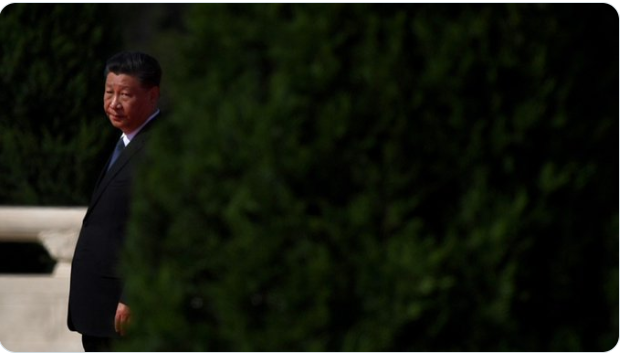



No comments:
Post a Comment